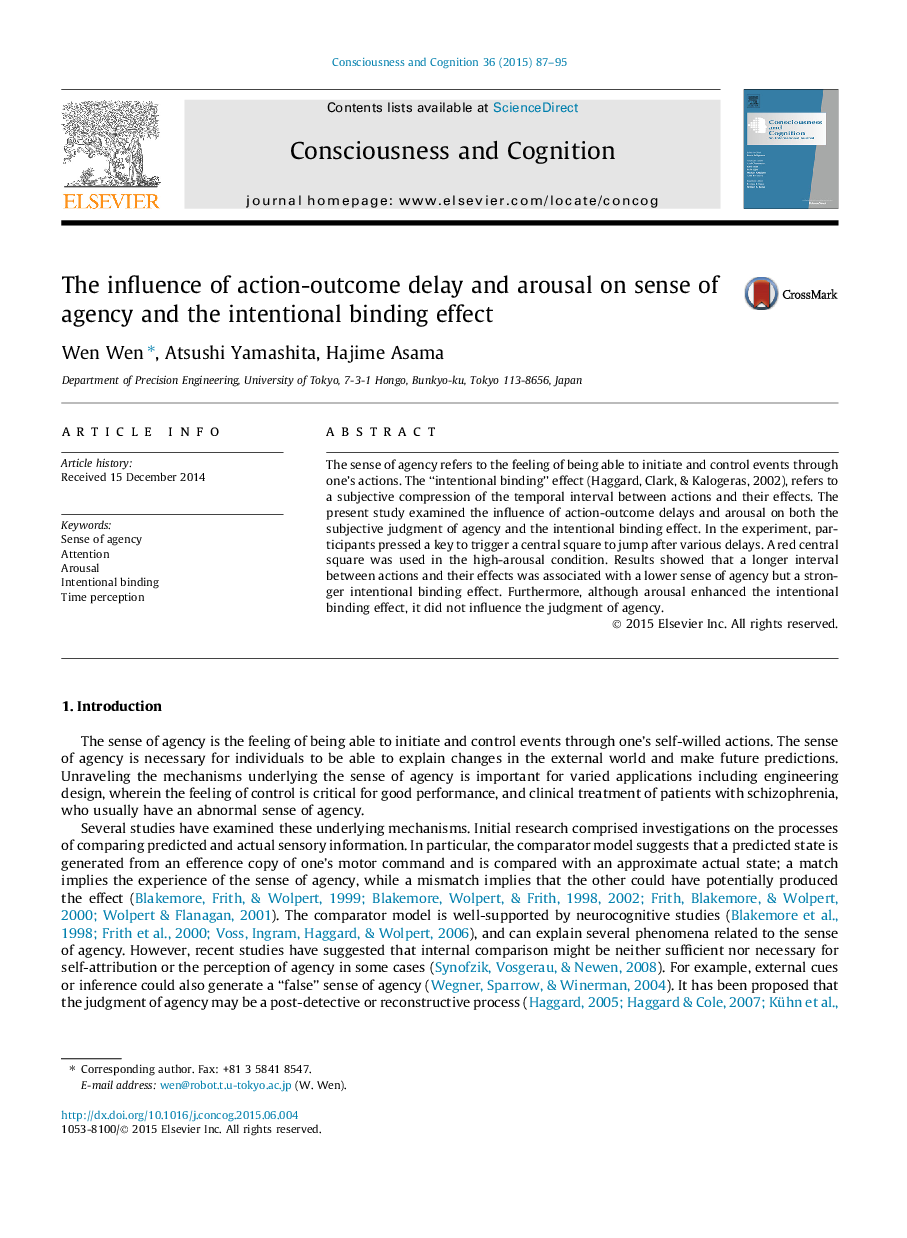| Article ID | Journal | Published Year | Pages | File Type |
|---|---|---|---|---|
| 7289032 | Consciousness and Cognition | 2015 | 9 Pages |
Abstract
The sense of agency refers to the feeling of being able to initiate and control events through one's actions. The “intentional binding” effect (Haggard, Clark, & Kalogeras, 2002), refers to a subjective compression of the temporal interval between actions and their effects. The present study examined the influence of action-outcome delays and arousal on both the subjective judgment of agency and the intentional binding effect. In the experiment, participants pressed a key to trigger a central square to jump after various delays. A red central square was used in the high-arousal condition. Results showed that a longer interval between actions and their effects was associated with a lower sense of agency but a stronger intentional binding effect. Furthermore, although arousal enhanced the intentional binding effect, it did not influence the judgment of agency.
Related Topics
Life Sciences
Neuroscience
Cognitive Neuroscience
Authors
Wen Wen, Atsushi Yamashita, Hajime Asama,
